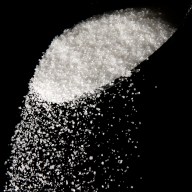TORONTO – The Canadian dollar closed higher Wednesday after the U.S. Federal Reserve said it would keep interest rates near zero for much longer than previously announced.
The Canadian dollar gained 0.63 of a cent to 99.65 cents US after the Fed officials said economic conditions are “likely to warrant exceptionally low levels for the federal funds rate at least through late 2014.”
The extended time frame is a shift from the Fed’s previous plan to keep the rate low at least until mid-2013. Some economists said the new, late-2014 target could lead to further Fed action to try to invigorate the economy.
The dollar had traded lower during the morning, reflecting worries that negotiations on avoiding a Greek debt default had hit an impasse while new economic data raised concerns that Britain could be slipping into recession.
Key Greek bondholders met for a closed-door meeting in Paris to discuss how — and whether — to continue talks central to Europe’s debt crisis.
The steering committee of the Institute of International Finance represents banks and other investment funds that hold a large part of Greece’s debt and are being asked to swap their existing bonds with new ones of a reduced value, longer maturity and lower interest rate.
Traders also took in a report that Britain’s economy shrank by 0.2 per cent in the last quarter of 2011, a worse than expected result that raised recession fears.
The Office for National Statistics said that the U.K. economy, which had been expected to contract by only 0.1 per cent, saw no growth in the key services sector and a slide in industrial activity.
Another quarter of contraction would put Britain officially in a recession.
Oil prices rose after the Fed announced its latest moves to stimulate the American economy and threats by Iranian legislators to halt oil sales to Europe.
The threat from Tehran follows a European Union decision to enforce an oil embargo against Iran starting this summer because of Iran’s secretive nuclear program. EU countries account for about 18 per cent of Iran’s oil sales.
Meanwhile, new data also showed that energy inventories in the U.S. are rising more than expected.
The U.S. Energy Information Administration said that crude inventories rose by 3.6 million barrels last week, against an expected gain of 700,000 barrels. Gasoline supplies fell by 400,000 barrels. Analysts had expected a much steeper drop in the neighbourhood of 2.2 million barrels.
The March crude contract on the New York Mercantile Exchange rose 45 cents to US$99.40 a barrel.
March copper shed early losses and closed up two cents at US$3.83 a pound, while bullion gained $35.60 to US$1,700.100 an ounce.
















